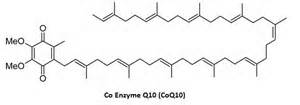Despite the popularity of fat grafting and its widespread use, it is far from a perfected procedure. Its most common problem is the unpredictability of its take or graft volume persistence. Despite what some physician’s claim, no one has developed a fat grafting method or technique that can give consistent and reliable results in all patients. It is not rare to have a patient happy with their fat grafting results for several weeks to months to then go on to have much if not all of the fat absorbed. More rarely, the reverse problem may occur with the fat graft growing beyond the desired contour change.
Many patients ask if they should do something special that will help the fat graft to take better in the early after surgery period. The initial important considerations is to avoid doing known things that can adversely affect fat graft take. Excessive pressure on the injected site can cause early graft resorption by pressure necrosis of fat cells that have not yet become revascularized. This is not a problem in the face or breasts but is a more important potential problem in the buttocks where some sitting is unavoidable. Smoking unquestionably interferes with oxygen delivery as the influence on the injected site would be not different than it would be on skin healing.
Diet may potentially have some influence on fat graft take. It is well known that insulin helps create or protect fat. Under stimulation of insulin, fatty acids are made into fat molecules and stored in fat cells as droplets. This has led to some surgeons suggesting that high carbohydrate diets may be beneficial as they increase insulin levels. But inducing fat cell growth or hypertrophy should not be confused with a fat cell surviving after transplantation. That is about the fat cell quickly acquiring a blood supply and nutrition to successfully take. Thus diet alone, other than adequate intake to maintain one’s weight, has no convincing role in fat graft survival.

Dr. Barry Eppley
Indianapolis, Indiana


